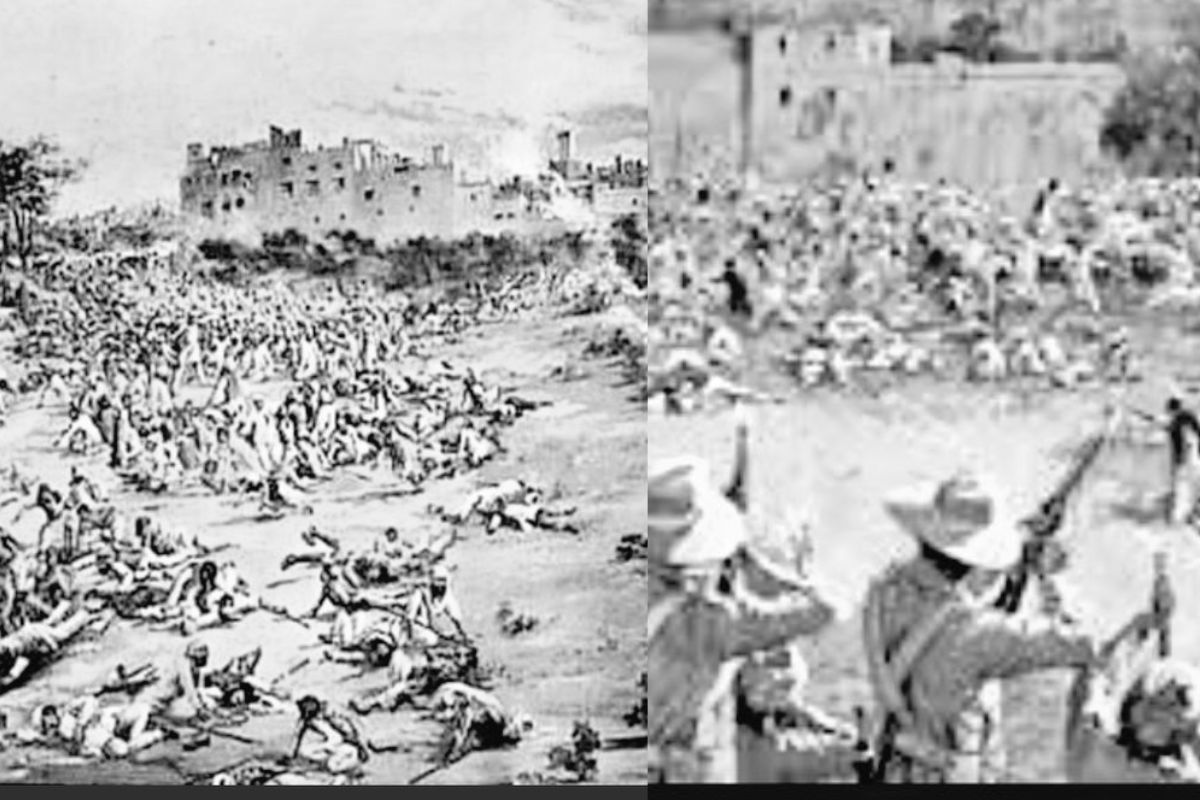Surf ad fame Kavita Chaudhaury dies of heart attack in Amritsar
TV actress and producer Kavita Chaudhary, known for her roles in the TV serial "Udaan" and as 'Lalitaji' in Surf commercials, passed away on Thursday. She was 67.
It is a reminder of the importance of standing up against injustice and oppression, and of the need for empathy and compassion towards all humanity.

104 years of Jallianwala Bagh massacre (Photo: Twitter)
The Jallianwala Bagh massacre, also known as the Amritsar massacre, remains one of the darkest chapters in India’s struggle for independence. It took place on April 13, 1919, in the Jallianwala Bagh public garden in Amritsar, Punjab, where a peaceful gathering of unarmed protesters was mercilessly gunned down by the British troops.
At the time, India was a British colony, and the country was deeply divided over British Rule. The Indian National Congress, a political party, was advocating for India’s independence through non-violent means but the British government had responded with repression and violence.
In April 1919, the British government passed the Rowlatt Act, which gave the government the power to detain anyone without trial, and to restrict public gatherings. This Act was met with widespread protests across India, and on April 13, a large crowd of protesters gathered in the Jallianwala Bagh garden, a public park, to protest against the oppressive colonial rule. The atmosphere was charged with patriotism, hope, and a sense of solidarity among the people.
Advertisement
But what followed next was a brutal and barbaric act of violence that shook the nation to its core. British troops, led by General Reginald Dyer, without any warning, ordered to open fire on the unarmed and defenceless crowd, killing hundreds of men, women, and children. The troops fired over a thousand rounds of ammunition, killing and injuring hundreds of people. The screams of the innocent victims echoed through the park, as families were torn apart, and bodies fell to the ground, bleeding and lifeless.
The brutality of the British forces was so extreme that some people even jumped into a nearby well to escape the bullets. Imagine yourself in the midst of a peaceful gathering of thousands of men, women, and children, who had come together to celebrate the Punjabi New Year and protest against the British government’s repressive policies. Such an occasion is charged with enthusiasm as the people sing, dance, and chant slogans of freedom and independence.
Suddenly, without any warning, Brigadier General Reginald Dyer enters the area with a group of soldiers and opens fire on the unarmed crowd. The bullets fly in from all directions, tearing through flesh and bone, and creating chaos and panic. The people run for cover, but there is no escape from the barrage of bullets. The cries of pain and anguish fill the air, as the wounded and dying lie on the ground, bleeding and gasping for breath. The scene is one of unimaginable horror, as the blood of innocent people stains the earth. The massacre lasted for about ten minutes, and when it was over, the garden was littered with bodies and wounded people. The incident sent shockwaves across India and the world, and it was widely condemned as an act of barbarism and brutality.
The Jallianwala Bagh massacre had far-reaching consequences for India’s struggle for independence. It sparked a wave of protests across India, and the Indian National Congress declared a nationwide strike. The British government, under pressure from public opinion, appointed a committee to investigate the incident, which was known as the Hunter Commission.
The Hunter Commission found Dyer guilty of excessive use of force and relieved him of his command, but it also exonerated the British government of any responsibility for the massacre. The incident had a profound impact on India’s political consciousness, and galvanised the independence movement.
The Jallianwala Bagh massacre was not just an act of violence but a betrayal of trust, an attack on the very fabric of humanity. The emotions of anger, grief, and a sense of injustice still run deep, as the nation continues to mourn the loss of innocent lives, and the scars of the tragedy continue to haunt us. It is a reminder of the cruelty and atrocities of colonial rule, and a call to never forget the sacrifices of those who fought for our freedom.
The Jallianwala Bagh massacre will forever remain a painful memory etched in the hearts and minds of the Indian people. It is a testament to the resilience and determination of the people of India, who continued to fight for their rights despite the odds against them. The Jallianwala Bagh massacre will forever be etched in the history of India, as a tragic chapter that must never be forgotten. It is a reminder of the importance of standing up against injustice and oppression, and of the need for empathy and compassion towards all humanity.
Advertisement